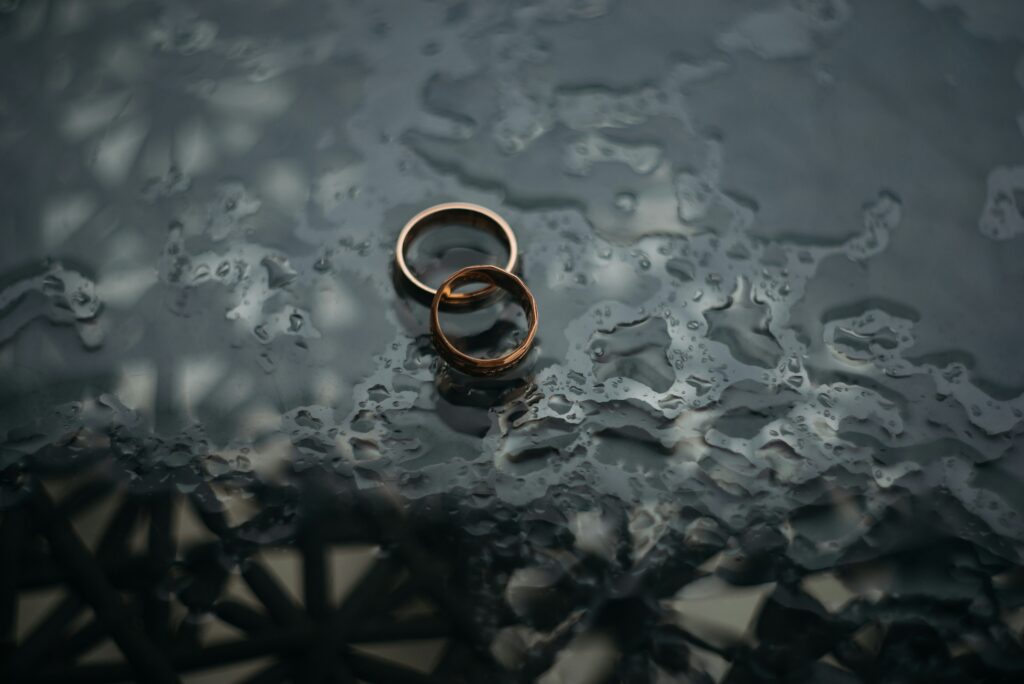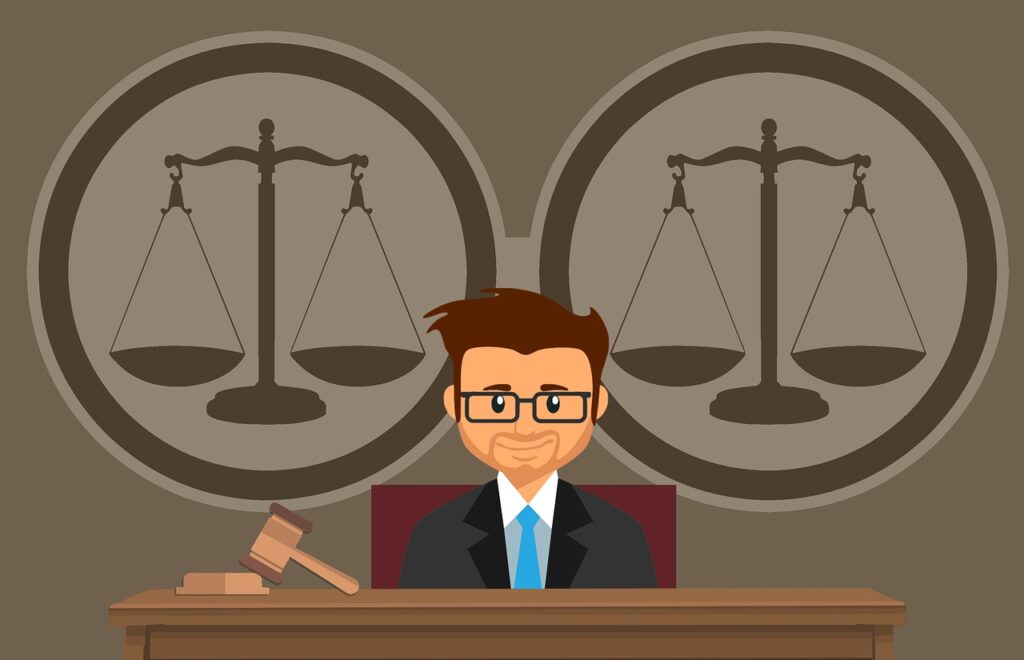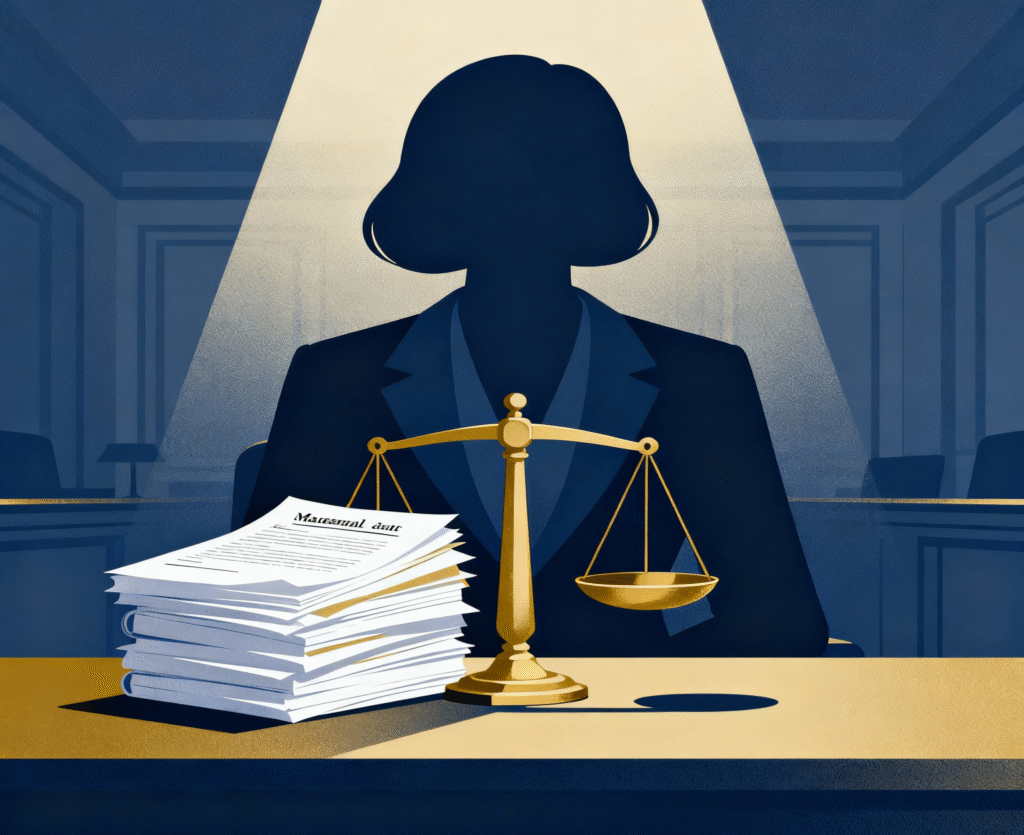Published on 12th February 2025
Authored By: Rabia Mittal
Baba Farid Law College, Faridkot ,Punjab
Bench: CJI DY Chandrachud,Sanjay Kishan Kaul, S. Ravindra Bhat, Hima Kohli, Pamidighantam Sri Narasimha
Relevant Provision
Section 4 of SMA
Article 15,16,17,19, 23, 24 of the Indian Constitution
Section 57 of the JJ Act
FACTS
This case came into the limelight after two same-sex couples filed writ petitions at the Supreme Court on November 14th, 2022. This particular matter was opened by the first petitioners of the case, Supriyo Chakroborty and Abhay Dang. The second petition was filed by Parth Phiroze Merhotra and Uday Raj Anand. The petitioners argue that Section 4(c) of the Special Marriage Act, 1954 is unconstitutional as it discriminates against same-sex couples by denying adoption rights along with the benefits of surrogacy, employment and retirement. The Supreme Court transferred similar petitions pending before the High Courts to itself. The case was referred to a 5-Judge Constitution Bench on March 13th, 2023. The 5-Judge Bench set aside its ruling on May 11th, 2023, after detaining the hearings for ten days. The bench of five judges passed a ruling regarding marriage equality for LGBTQIA+ persons on October 17th, 2023.
Petitioner-Supriyo Chakraborty: His name appears in the writ petition filed by Abhay Dang along with other same-sex couples, on November 14, 2022, seeking legal recognition of marriages conducted under the Special Marriage Act, 1954.
Respondent : Union of India (and Ministry of Law and Justice)
ISSUES AND LAW
There are many issues pertaining to this case . Here are some of the major highlighted issues :
(1)Does the Supreme Court have the power to hear this case?
The Union Government claimed that if the Supreme Court decides over the question related to same-sex couples and their right to marry, it would violate the Doctrine of Separation of Power letting the Supreme Court infringe upon the legislative domain. CJI DY Chandrachud while opening this matter has also obtruded upon the area of Judicial Review, and said that the Supreme Court is well within power to go for this question. His brother Justice Bhat disagreed with CJI and held that to say just because “a Court may feel the wisdom of a measure or norm that is lacking” it must be careful not to enter the domain of powers and functions constitutionally assigned to other departments and organs to discharge them. While the very absence of entitlements renders queer persons to be discriminated against, the court cannot “fashion a parallel legal regime in which there need be defined entitlements and obligations”.
(2)Do we have a fundamental right to marry?
The court, thus it was unanimously granted that the fundamental right to marry does not lie within the scope of freedom or rights. CJI by virtue said, “the Constitution does not expressly provide…has not expressly recognized under any provision this right.” It states further that laws related to the institution of marriage are made only by parliament. Besides, these laws may be amended at the discretion of state legislatures. He also pointed out that those state legislatures, which have “not created an institution of marriage in exercise of their powers”, would have to create an institution in light of the positive postulate that inheres in the right to marry. Justice S.R. Bhat subscribed to the position of the CJI, while Justice Narasimha also added that marriage is not only a fundamental right but, above all, a fundamental freedom of choice.
(3)Do queer couples have the right to marry?
On this question, a 5 Judge Bench of the Supreme Court gave a split verdict. In a verdict delivered by the 3:2 majority, the right of queer couples to get married was denied. Justice D Y Chandrachud and Justice S K Kaul were in favor of the queer couples. The majority opinion was given by justices Bhat, Narasimha, and Hima Kohli. Justice Bhat, heading the majority opinion, held that all queer persons must have the right to relationship and choice of partner; this right is an integral part of their choice to cohabitate and live together. Such right already stands recognized under Article 21. The “ordering of a social institution” would require a complete separate legal framework governing “the new universe of rights and obligations.” In Justice Bhat’s view, this would require a separate regime for registering a civil union, setting forth its conditions for validity, including eligibility, age, restrictions, divorce, alimony, and various other rights deemed ancillary to marriage.
(4) Is the Special Marriage Act, 1954 unconstitutional?
To this, CJI Chandrachud determined that a declaration of the SMA as “void” would “take India back to the pre-independence era” when inter-caste and inter-faith relationships were impermissible. “Such a judicial verdict would take the nation back to the time which was ruled with social inequality and religious intolerance to allow the courts to take up the question of eradication of one form of discrimination and prejudice while allowing another.” Justice Bhat pointed out that the original intent behind enacting the SMA was to “facilitate marriage between persons professing different faiths.”
He further stated that an attempt to discredit a law can only be made if, despite its positive aim, it is found to be ineffectively classified.
(5)Can queer marriages possibly be read as implied in the Special Marriage Act of 1954 through purposive interpretation?
The Chief Justice opined that purposive interpretation of Section 4, which inherently clarifies marriage between a male and female, could be a “model of workability”, adding words, deleting words, or substituting words wherever necessary in Section 4. He ruled thusly: “This Court would effectively be redrafting the law(s) in the guise of reading words into provisions”, thus effectively contravening the principle of separation of powers.”
(6) Can unmarried and queer couples adopt?
Regulation 5(3) of the Central Adoption Resource Authority Guidelines of 2020 was challenged by the Petitioners, which barred single individuals and married couples who have been in a stable marital union for two years from adopting. According to Section 57(2) of the Juvenile Justice (Care and Protection of Children) Act, 2015, both married spouses must consent for adoption. The five-judge bench had a 3:2 split verdict on the question, asserting that queer couples are not entitled to adopt a child. The leading opinion of Justice Bhat stated that Section 57(2) of the Juvenile Justice (Care and Protection of Children) Act, 2015 clearly conceptualizes marriage as upbringing in adoption. It was also stated: “The framework ensures that if one of the partners were to leave the relationship, the remaining partner would be able to carry on and the kid would be provided for-one remedy a couple with no legal recognition would have been deprived of.” To clarify, Justice Bhat noted that such couples who are married may not be a “morally superior choice.” However, the adoption framework considers “the protection and entitlements that flow from the institution of marriage.” The “guiding principle” of the JJ Act is the best interest of the child .
(7)Are transgenders allowed in heterosexual marriages to marry under existing laws?
CJI Chandrachud said a transgender person in a heterosexual relationship is entitled, under existing marriage laws, to marry through a “harmonious interpretation” of existing marriage laws and the Transgender Persons Act. He construed that marriage laws in India permit marriages which occur from heterosexual relationships. Existing laws, such as the SMA or other personal laws, describe such marital arrangements as a “marriage between a man and a woman”, “husband and wife”, and “bride and bridegroom”. Restricting this would directly infringe on the provisions of the Transgender Persons Act prohibiting discrimination of transgender persons. He stated that a person is a transgender person by virtue of their gender identity, and not their sexual orientation.
ANALYSIS
The Supreme Court 5-judge constitution bench pronounced judgment in the case of same-sex marriage in the “Supriyo Vs Union of India” case.
In a verdict, the Supreme Court rendered a decision agreeing with the many disadvantages the non-heterosexual couple face, but refused to characterize these disadvantages as having constitutional dimensions or to do anything more for the petitioners than to uphold the vagaries of the “High-Powered Committee promise made by the Union. In my view, the present case represents a significant regression in the development of fundamental rights jurisprudence in at least three areas: unenumerated rights, positive rights, and permissible classifications. It has been the case that petitioners contend the state wrongfully reputed the right to marry by same-sex couples in section 4 of SMA, based on precedent where it puts marriage in values found in Article 19 (1)(a) and 21 of the constitution that emphasizes expression, dignity, and autonomy. The court summarily dismissed the argument on the grounds that there is no right granted to marriage by the constitution; thus, it cannot consider evaluating whether the denial of such right to same-sex couples was constitutional.
For an unenumerated right to be a fundamental right it must owe something to the state, at least to some extent and it’s coming into force cannot call for evolution of laws over non-states, this was the Court’s reasoning. Thus the only law-making and-unmaking authority in the nation was Parliament. The judgments also recognize that customary or religious considerations have to go into the balance before a decision is made.
CONCLUSION
The Supreme Court in a 3-2 verdict on October 17, 2023, ruled against any legal recognition of same-sex marriages. The five-judge bench included Chief Justice D.Y. Chandrachud and Justices Sanjay Kishan Kaul, S.Ravindra Bhat, Hima Kohli, and P.S. Narasimha. The Chief Justice D.Y. Chandrachud went on to state this. The Constitution guarantees freedoms and is the rightful sanctuary for queer communities, inviting recognition of their union. The court cannot strike down provisions in the Special Marriage Act; that is a separate area for Parliament and legislation. Transgender persons can marry heterosexual persons under the existing laws or personal laws. Justice Kaul also endorsed the Chief Justice’s thoughts and kept pushing for the legalization of same-sex marriage. Justice S. Ravindra Bhat, on the other hand, said:”The union is requested to establish a high-powered committee to examine the rights and benefits to queer communities.”Marriage is a social institution, and one must not be permitted to treat it like an unqualified right that essentially becomes fundamental. However, if we are to concede marriage as a social institution, would it then follow that should any section of society desire the creation of such an institution, it could seek redress by resorting to judicial intervention? Court could not create a legal framework for queer couples and it is up to the legislature to do it as many factors regarding policy are to be considered. Justice Hima Kohli and Justice P. S. Narsimha are both in disagreement with the Chief Justice on the legalization of same-sex marriage. The Court pronounced that a fettered and working union government committee would be set up to consider the rights and privileges of the couple under review to be considered for eligibility for privilege without obtaining legal recognition under the union. The court further opined that the couple has the right to cohabit without any threat of violence but the recognition of the marriage is a rather matter of legislation to decide and is not in hands of court.
REFERENCES
Snehil Sharma, Case Analysis: Supriyo @ Supriya Chakraborty & Anr. v. Union of India, (2023), Same-Sex Marriages in India (June 2, 2024), https://www.legalbites.in/landmark-judgements/case-analysis-supriyo-supriya-chakraborty-anr-v-union-of-india-2023-same-sex-marriages-in-india-1036221.
Judicial world, Supriyo @Supriyo Chakraborty and Anr v. Union of India, YouTube, https://youtu.be/8b0GLr0pWLQ?si=XZ3fNmRJSIoMtx3s.
StudyIQ IAS, Same Sex Marriage in India, YouTube, https://youtu.be/-H-jEfQFpBU?si=-AdnnHGuMhLtvyAv.
CASE ANALYSIS: SUPRIYO VS UNION OF INDIA – Lawful Legal. https://lawfullegal.in/case-analysis-supriyo-vs-union-of-india/.
Supriyo v. Union of India – Wikipedia. https://en.wikipedia.org/wiki/Supriyo_v._Union_of_India.
Supriyo @ Supriya Chakraborty v/s Union of India: Case Analysis. https://www.legalserviceindia.com/legal/article-17098-supriyo-supriya-chakraborty-v-s-union-of-india-case-analysis.html.
Judgments PDF, Google Drive https://bit.ly/49iJUJl.
Supriyo @ Supriya Chakraborty & Anr. vs. Union of India, https://privacylibrary.ccgnlud.org/case/supriyo-supriya-chakraborty-anr-vs-union-of-india.
Indian Kanoon, Supriyo @ Supriya Chakraborty v/s Union of India, https://indiankanoon.org/doc/129202312/.
Summary of Recent judgment, https://www.dhyeyalaw.in/supriya-chakraborty-anr-v-union-of-india.




